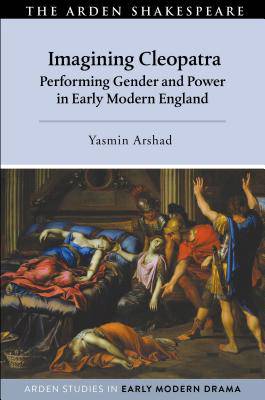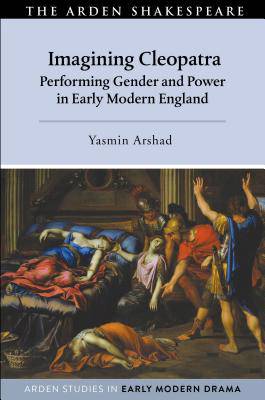
- Afhalen na 1 uur in een winkel met voorraad
- Gratis thuislevering in België vanaf € 30
- Ruim aanbod met 7 miljoen producten
- Afhalen na 1 uur in een winkel met voorraad
- Gratis thuislevering in België vanaf € 30
- Ruim aanbod met 7 miljoen producten
Omschrijving
Shakespeare's characterization of Cleopatra may dominate the collective consciousness, but he was only one of several 16th-century writers fascinated by the enigmatic queen of Egypt. Early modern conceptions of Cleopatra offer a rich, complex, and variable set of models for understanding the period's responses to race, female sovereignty, and classical antiquity. This interdisciplinary study investigates images of Cleopatra in the early modern period and examines how her story was mediated and used - from drawing lessons from history to being a symbol of female heroism. It draws on early historiographical works, political and philosophical treatises, coterie dramatic productions, and gender, race and performance studies, as well as evidence from material culture, to consider what was known and thought about Cleopatra in the period
This book provides a new literary and cultural history of one of the world's most contested and politically-charged iconic female figures. It combines a close reading of literary and dramatic works with historical and political contexts, paying particular attention to the three major early modern Cleopatra plays: Mary Sidney's translation of Robert Garnier's Marc Antoine, Samuel Daniel's The Tragedie of Cleopatra, and Shakespeare's Antony and Cleopatra. By examining these conflicting historical and fictional identities, Yasmin Arshad offers a diverse and ground-breaking study of Cleopatra's 'infinite variety'.Specificaties
Betrokkenen
- Auteur(s):
- Uitgeverij:
Inhoud
- Aantal bladzijden:
- 360
- Taal:
- Engels
- Reeks:
Eigenschappen
- Productcode (EAN):
- 9781350058965
- Verschijningsdatum:
- 22/08/2019
- Uitvoering:
- Hardcover
- Formaat:
- Genaaid
- Afmetingen:
- 130 mm x 201 mm
- Gewicht:
- 476 g

Alleen bij Standaard Boekhandel
Beoordelingen
We publiceren alleen reviews die voldoen aan de voorwaarden voor reviews. Bekijk onze voorwaarden voor reviews.







